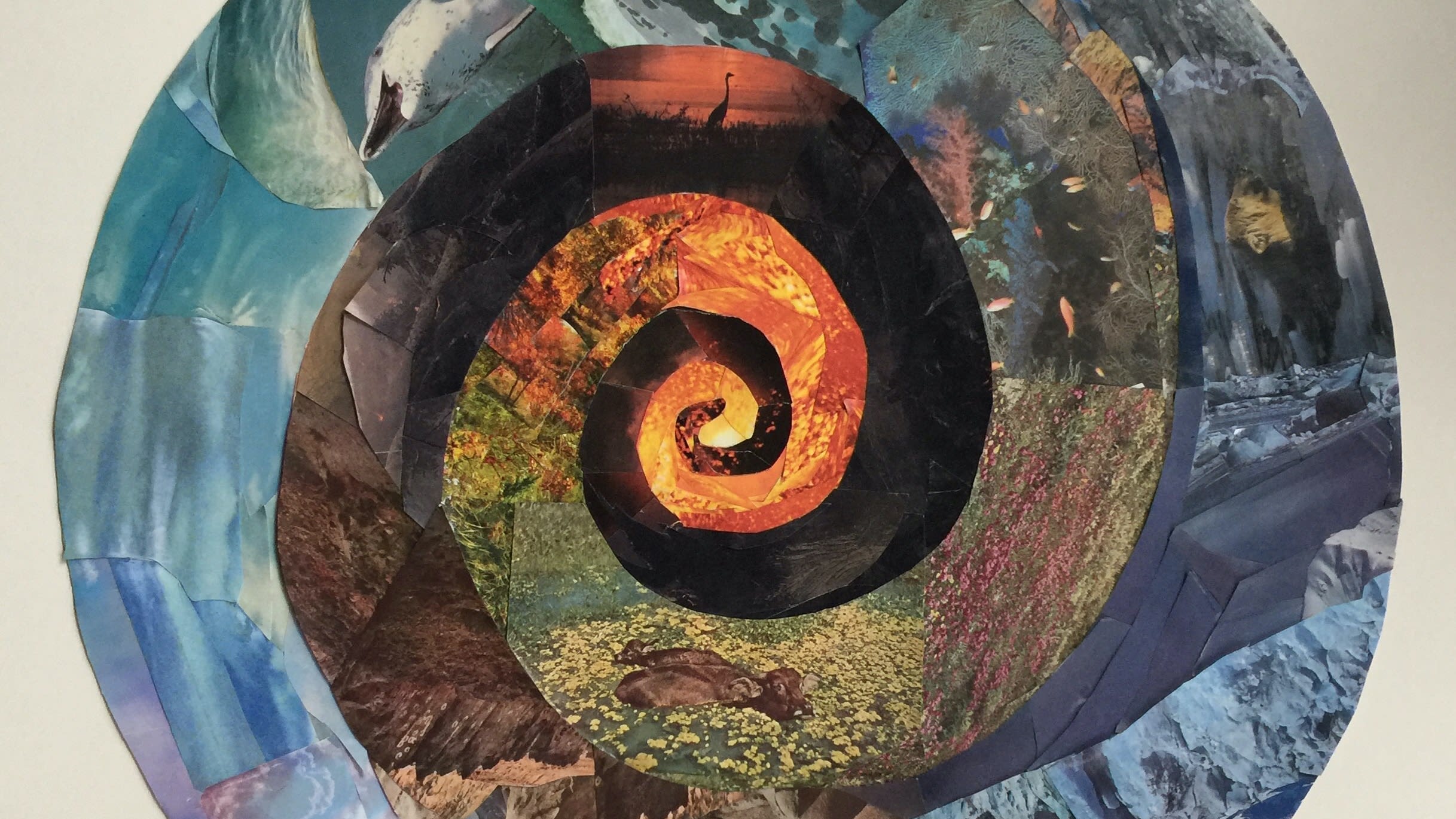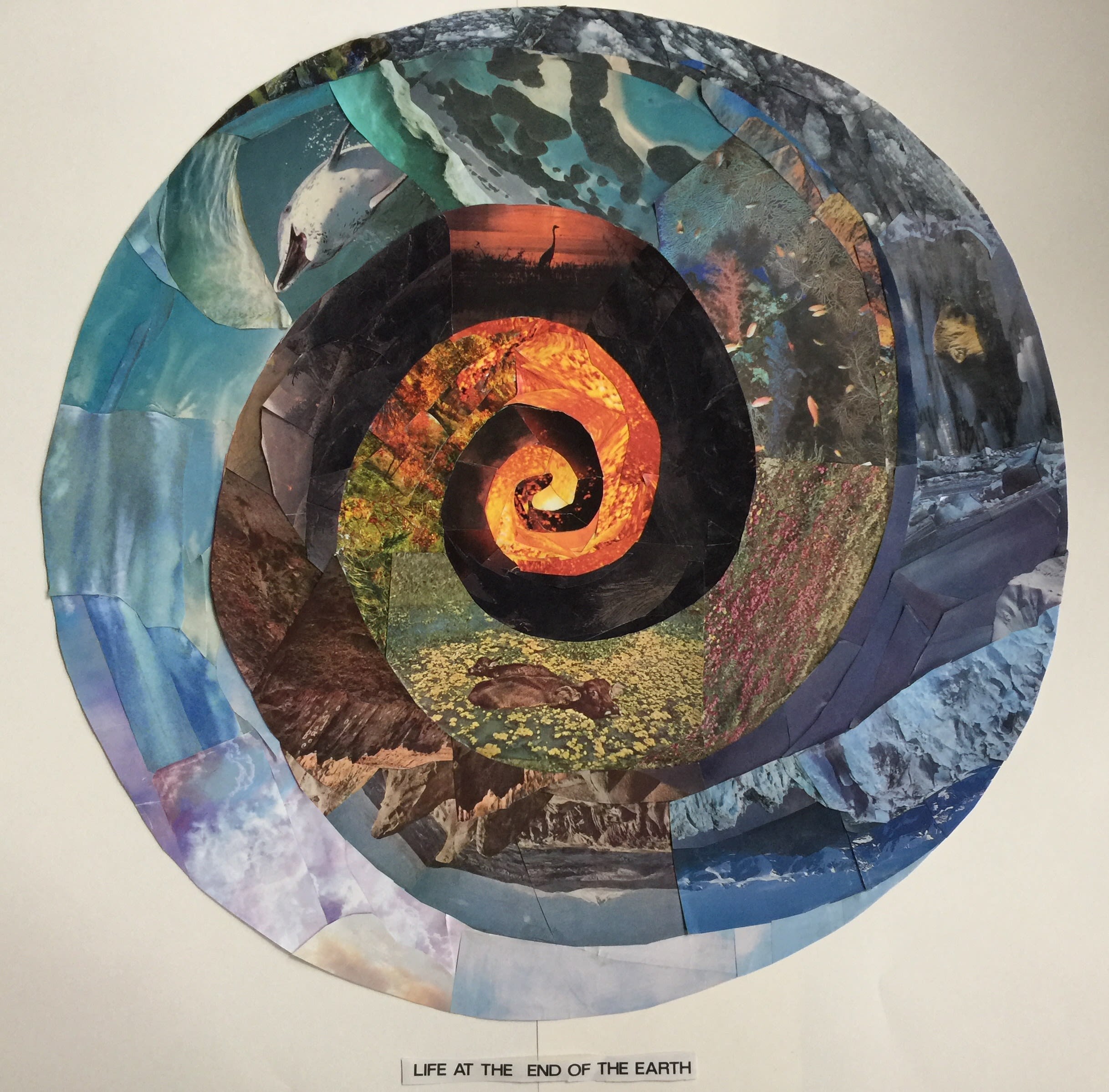Online Course Explores Art and Philosophy

Collage by Dani DeLade depicting the ecological histories of the Earth.
Online learning through SVA’s Division of Continuing Education is a means for students to easily access educational resources and connect to creative communities spanning locally and internationally. One online course, Artist as Philosopher: Artmaking at the Source of Ideas, taught by instructor and SVACE associate director Keren Moscovitch, links students through SVA’s online learning platform, Canvas, and provides students with an immense archive of philosophical texts. In response to the current global health crisis, we asked Moscovitch how online learning can play a greater role in the future, and the ways in which philosophy unites artists in conversation.

Collage by Dani DeLade depicting the ecological histories of the Earth.
SVACE: Can you please give a brief description of your course?
KM: Artist as Philosopher: Artmaking at the Source of Ideas is one of two six-week modules (the other is Artist as Philosopher: Postmodernism in Practice) that draw a narrative arc of histories and ideas in Western philosophy that have developed a dialogue with art, both contemporaneously and trans-historically. We explore transgression and obedience, beauty and the sublime, modernism and form, capitalism and resistance, psychoanalysis, and feminist and postcolonial/decolonial responses to these ideologies. Throughout, students are invited to engage these topics in discussion boards and by producing poetic responses to the material.
SVACE: In a time where our energy has been redirected to a global health crisis, how do you see philosophy playing a role in contemporary art practice?
KM: We are experiencing an unprecedented global event that is shaking our foundations to the core. Who are we if not consumers in a capitalist society? What is intimacy without physical contact? How can we think ecologically when the environment has turned against us as a species? These questions have been addressed for millenia in different forms, and it helps us to learn from our own histories of thought, as we develop languages for our futures. We are not starting from scratch, but have a world of ideas beneath us, supporting us and available for us to dig through and rediscover.
SVACE: What role do you see online learning playing in institutions currently and in the future?
KM: I have been really inspired watching the SVA community pull together and pivot to a brand new way of working, teaching and learning practically overnight! We are seeing how vulnerable we are, but also how powerful we can be when we develop collective responses to new realities. Online learning is a strategy, and a tool we have at our disposal, but it is neither perfect nor comprehensive. We still need to concern ourselves with equity and distribution of resources (just like in-person learning), and we still need each other in physical space.
Follow our updates and stories on our Facebook, Twitter, LinkedIn, and Instagram pages. And meet the SVACE community by reading our new issue of SVA ContinuEd in print or digital versions!

